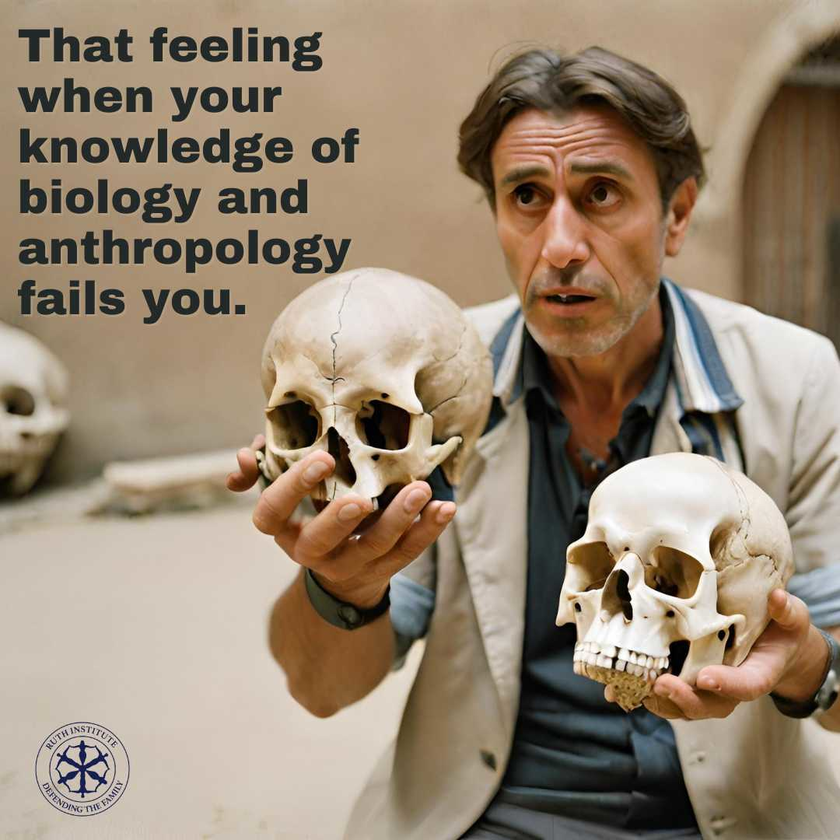The settled science? Scientific evidence?” said Ruth Institute president Dr. Jennifer Roback Morse, Ph.D., in response to a recent statement by the American Anthropological Association (AAA). “Where is this evidence?” she asked.
The board of the AAA released a statement titled: “No Place for Transphobia in Anthropology: Session pulled from Annual Meeting program.” The statement explained their reasons for removing a session called, “Let’s Talk about Sex Baby: Why biological sex remains a necessary analytic category in anthropology.”
The AAA stated: “The session was rejected because it relied on assumptions that run contrary to the settled science in our discipline.” Those contrary ideas are, “namely, that sex and gender are simplistically binary… Such efforts contradict scientific evidence.”
Morse stated, “Anthropology is the study of humans throughout history. Did earlier generations of anthropologists find evidence that Lucy was transgender or nonbinary? No. For as long as life has been studied, there have been two and only two sexes—in all mammal species.”
“The idea of there being more than two, or that the sex of the body isn’t obvious at birth, except in very rare cases, is only a recent fad. Yet the powers that be at the AAA call this new, non-binary approach ‘settled science.’”
“So, the beliefs of anthropologists over the past several hundred years were possibly wrong?” Morse asks. “Since many anthropologists study skeletons, can these current anthropologists picture their forebears rolling over in their graves?”
The AAA states: “Around the world and throughout human history, there have always been people whose gender roles do not align neatly with their reproductive anatomy. There is no single biological standard by which all humans can be reliably sorted into a binary male/female sex classification.”
“Sure,” said Morse, “just as some girls are tomboys, and some boys like playing with dolls. But tomboys are still girls, and those boys are still boys. There’s nothing wrong with girls who aren’t classically feminine or boys who aren’t the standard ‘masculine’ male.”
“We don’t need to invent new terms to describe people who don’t fit rigid sex stereotypes. Nor do we need to inflict intrusive medical procedures on people to make them appear to be the opposite of the sex they were born.”
A growing number of people who attempted to live as the opposite sex are coming forward to say they were irreparably harmed. These detransitioners are telling their stories and are suing their health care providers.
“Eventually the world will come back to its senses once the voices of these poor damaged people become too loud to ignore, telling us: ‘Changing the sex of the body is impossible.’”
“When future generations of anthropologists dig up skeletons, they will know whether the person was male or female. The fad of people claiming other identities will be long gone.”
The Ruth Institute has a growing playlist of interviews with detransitioners, as well as a Transgender Resource Center with other videos and resources on this issue.




















